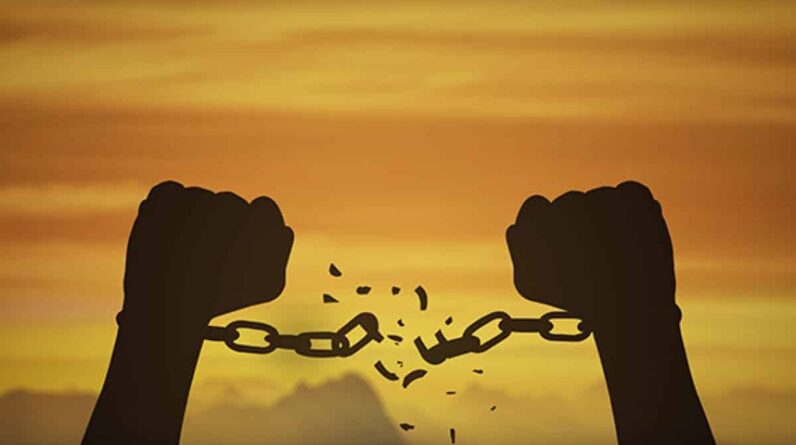
The International Day for the Abolition of Slavery is an annual observance dedicated to raising awareness about the ongoing issue of modern-day slavery and promoting its eradication. Slavery is a grave violation of human rights that affects millions of individuals worldwide, and this day serves as a reminder of the urgent need to take action against this heinous crime.
Slavery takes various forms, including forced labor, human trafficking, and child exploitation, and it continues to thrive in many parts of the world despite being illegal. Through education, advocacy, and collaboration, efforts are being made to end slavery and support its victims.
The International Day for the Abolition of Slavery is an opportunity to reflect on our collective responsibility to ensure freedom, justice, and equality for all.
The History Of Slavery And Its Abolition
Slavery has a long and dark history, originating as early as ancient civilizations such as Mesopotamia and Egypt. It eventually spread across continents, with the transatlantic slave trade being one of the most infamous chapters. The global impact of slavery cannot be underestimated, as it shaped economies, cultures, and societies.
Over the years, there have been critical milestones in the fight against slavery. One notable milestone was the Haitian Revolution in 1804, where enslaved people successfully revolted against their oppressors, establishing the first free black republic. The abolitionist movement gained momentum throughout the 19th century, resulting in significant legislative actions.
| Year | Event |
|---|---|
| 1807 | The British Empire abolished the slave trade. |
| 1833 | The British Empire abolished slavery. |
| 1863 | The Emancipation Proclamation in the United States. |
| 1888 | Slavery was abolished in Brazil. |
These milestones in the fight against slavery paved the way for international efforts. The United Nations proclaimed December 2nd as the International Day for the Abolition of Slavery to raise awareness and promote action against this ongoing human rights violation.
International Day For The Abolition Of Slavery: A Global Initiative
International Day for the Abolition of Slavery is a global initiative that aims to raise awareness about the ongoing issue of slavery and promote actions to eradicate it worldwide. This significant day encourages countries and individuals to unite and work towards abolishing all forms of modern-day slavery.
Understanding The Significance Of International Day For The Abolition Of Slavery
The International Day for the Abolition of Slavery is a vital global initiative focusing on eliminating all forms of slavery and raising awareness about the persisting issue. This day serves as a reminder of the continuous efforts made by various countries and organizations to combat modern-day slavery.
Global efforts have been intensified over the years, with organizations working towards prevention, protection, and prosecution. Governments, civil society, and individuals worldwide actively engage in campaigns, initiatives, and awareness programs to end this heinous crime against humanity.
The International Day for the Abolition of Slavery serves as a platform for acknowledging the progress made and highlights the need for continued actions to eradicate slavery completely.
| Efforts and initiatives | Examples |
|---|---|
| Legislation and policy reforms | Criminalizing slavery, providing legal protection and ensuring justice for victims. |
| Capacity building | Enhancing skills and capabilities of law enforcement agencies and organizations involved in combating slavery |
| Prevention measures | Addressing root causes, poverty alleviation, education, and raising awareness about the risks of slavery |
These efforts and initiatives are integral in the fight against slavery, ensuring that victims are protected, perpetrators are held accountable, and societies are educated to prevent the perpetuation of this heinous practice.
Resisting Slavery: Stories Of Courage And Liberation
Slavery is dark in human history, but individuals have always risen against this heinous practice. Today, on the International Day for the Abolition of Slavery, we are reminded of the courage and determination of those who fought against it.
From the stories of Harriet Tubman, Sojourner Truth, and Frederick Douglass in the United States to the campaigns led by William Wilberforce in the United Kingdom and Mahatma Gandhi in India, countless historical figures have played a significant role in the abolition of slavery.
These trailblazers serve as a reminder that individuals can make a difference. Their bravery inspires us to continue the fight against modern forms of slavery that persist today, such as human trafficking and forced labor. Sharing the stories of those who have escaped such atrocities helps raise awareness and sheds light on the ongoing challenges victims face.
Modern-day Slavery: Uncovering Hidden Chains
Modern-day slavery continues to be a grim reality, affecting millions worldwide. Despite being officially abolished in many countries, slavery persists in various forms, often hidden within agriculture, manufacturing, construction, and even domestic work. This blog post aims to shed light on the prevalence and socio-economic impact of contemporary slavery.
One of the most common forms of modern-day slavery is forced labor, where individuals are forced into working under exploitative conditions. This can range from bonded labor, where debts are manipulated to ensure the impossibility of repayment, to human trafficking, where victims are transported across borders and subjected to various forms of abuse.
Another prevalent form is child labor, which deprives children of their childhood, education, and overall well-being. Many children are forced to work in hazardous conditions, carrying heavy workloads that stunt their physical and mental development.
Modern-day slavery violates human rights and has profound implications for global economies and societies. It hampers economic development by undercutting fair competition and exacerbating income inequality. Additionally, it perpetuates cycles of poverty by trapping individuals and communities in a state of vulnerability.
Efforts to combat modern-day slavery require a multi-faceted approach, encompassing legislative measures, strengthened law enforcement, improved supply chain transparency, and heightened public awareness. By understanding the different forms of contemporary slavery and their far-reaching consequences, we can work towards eradicating and protecting human dignity for all.
Combating Slavery In The Digital Age: Technology As A Tool
Modern technology has become a crucial tool in the fight against slavery and human trafficking. Digital platforms provide avenues for raising awareness and proactively preventing these heinous crimes.
By utilizing technology, organizations and individuals can reach a wider audience and disseminate critical information on the International Day for the Abolition of Slavery. Social media campaigns, websites, and mobile applications are just a few examples of how technology can be leveraged to combat modern-day slavery.
These platforms provide a space for survivors to share their stories, empowering them and shedding light on the reality of slavery in the digital age. Moreover, they offer opportunities for communities to report suspicious activities and support victims. With technology as a tool in our hands, we have the power to eradicate slavery and make a lasting impact on the lives of those affected.
Legislative Measures: Advocacy And Policy For Change
Examining legal frameworks and international legislation against slavery plays a crucial role in the fight against this heinous crime. Governments, NGOs, and international organizations have united to combat slavery and enforce anti-slavery laws worldwide.
Legislative measures have been implemented nationally and internationally to address the issue. Various countries have established laws and regulations prohibiting and punishing all forms of slavery. Examples of international legislation against slavery include the Universal Declaration of Human Rights, the Slavery Convention, and the Protocol to Prevent, Suppress, and Punish Trafficking in Persons, especially Women and Children.
Governments play a vital role in enforcing legislation and providing necessary resources for anti-slavery initiatives. NGOs and international organizations, such as the United Nations and the International Labour Organization, strive to raise awareness, support victims and advocate for more vital legislation. Collaboration between these entities is fundamental to effectively combat modern-day slavery and protect the human rights of individuals affected by this crime.
Education And Empowerment: Breaking The Cycle Of Slavery
Promoting education to prevent slavery and empower vulnerable communities is vital in the fight against modern-day slavery. Education plays a crucial role in raising awareness about the rights and dignity of individuals and serves as a powerful tool for breaking the cycle of exploitation.
By providing access to quality education, we can equip individuals with the knowledge and skills to make informed choices, become self-reliant, and resist exploitative situations.
Advocacy for sustainable development goals (SDGs) is essential to address the root causes of slavery. This includes ensuring access to education and vocational training, particularly for vulnerable groups such as children, women, and marginalized communities.
By incorporating education within the framework of SDGs, we can foster a holistic approach towards eradicating slavery. Empowering individuals through education not only helps them escape the clutches of slavery but also contributes to their overall development and the creation of sustainable societies.
Join The Movement: Taking Action Against Slavery
The International Day for the Abolition of Slavery is an opportune moment to raise awareness and take action against this inhumane practice. Encouraging individuals to get involved in the fight against slavery is crucial for its eradication. There are actionable steps that can be taken to make a difference.
One way to support organizations combatting slavery is by donating to their cause. Financial contributions allow these organizations to provide resources and support to survivors, advocate for policy changes, and conduct anti-trafficking operations. Another way to contribute is by volunteering your time and skills. You can offer your legal aid, counseling, or awareness campaign expertise.
Advocacy plays a vital role in ending slavery. By standing up against human trafficking and raising awareness about its prevalence, you can help bring it to the forefront of societal consciousness. Share information on social media, organize community events and engage in discussions to generate more attention and support for the cause.
Furthermore, supporting ethical businesses helps combat the demand for products and services produced through exploitative labor practices. By choosing to purchase from companies that prioritize fair trade and labor rights, you contribute to the fight against modern slavery.
Taking action against slavery is a collective effort that requires the commitment and determination of individuals worldwide. By actively engaging in these actionable steps and encouraging others to do the same, we can progress towards a world free from slavery.
Towards A Slave-free Future: Collective Responsibility
As we commemorate the International Day for the Abolition of Slavery, we must acknowledge our collective responsibility in striving toward a slave-free future. Together, we can work towards ending this horrendous practice and ensuring freedom and equality for all.
| International Day for the Abolition of Slavery |
Recognizing The Importance Of Collaboration And Partnerships In Eradicating Slavery |
|
Slavery continues to plague societies worldwide, and our collective responsibility is to work towards its abolition. Collaboration and partnerships are crucial in this endeavor as we address the challenges and foster a global movement towards a slave-free world. By joining forces with governments, NGOs, businesses, and individuals, we can pool our resources, expertise, and influence to combat this grave violation of human rights. Through information sharing, coordination, and joint efforts, we can develop comprehensive strategies that tackle the root causes of slavery and support survivors on their path toward freedom and rehabilitation. Such collaboration fosters a sense of unity and empowers us to make a tangible impact in various domains, including legislation, law enforcement, awareness campaigns, and victim support services. Together, we have the power to bring about lasting change. Let us stand together on the International Day for the Abolition of Slavery and reaffirm our commitment to a future free from the clutches of slavery. |
Frequently Asked Questions For International Day For The Abolition Of Slavery
What Is The International Day For The Abolition Of Slavery?
The International Day for the Abolition of Slavery is observed on December 2nd each year to raise awareness about the persistence of slavery-like practices and promote efforts to eradicate modern slavery.
Why Is The International Day For The Abolition Of Slavery Important?
The International Day for the Abolition of Slavery is essential as it reminds us of the millions of people affected by slavery and trafficking. It raises awareness about the need for concrete actions to end these human rights violations and supports victims in their recovery and reintegration.
How Can I Get Involved In The International Day For The Abolition Of Slavery?
You can get involved in the International Day for the Abolition of Slavery by participating in awareness campaigns, supporting organizations working to combat slavery, educating others about the issue, and advocating for stronger laws and policies to protect victims of slavery and prevent its occurrence.
What Are Some Examples Of Modern Slavery?
Modern slavery can take various forms, including forced labor, child labor, human trafficking, debt bondage, and forced marriage. It can happen in agriculture, construction, manufacturing, and the sex trade. Exploiting vulnerable individuals for profit is a grave violation of human rights that requires attention and action.
Conclusion
On the International Day for the Abolition of Slavery, we stand united against this long-standing human rights violation. By raising awareness and taking action, we can contribute to the eradication of slavery and ensure that every person enjoys their freedom.
Let us strive to create a world where no one is subjected to the chains of slavery and every person can live a life of dignity and equality. Together, we can make a difference. Join the fight against slavery today.




